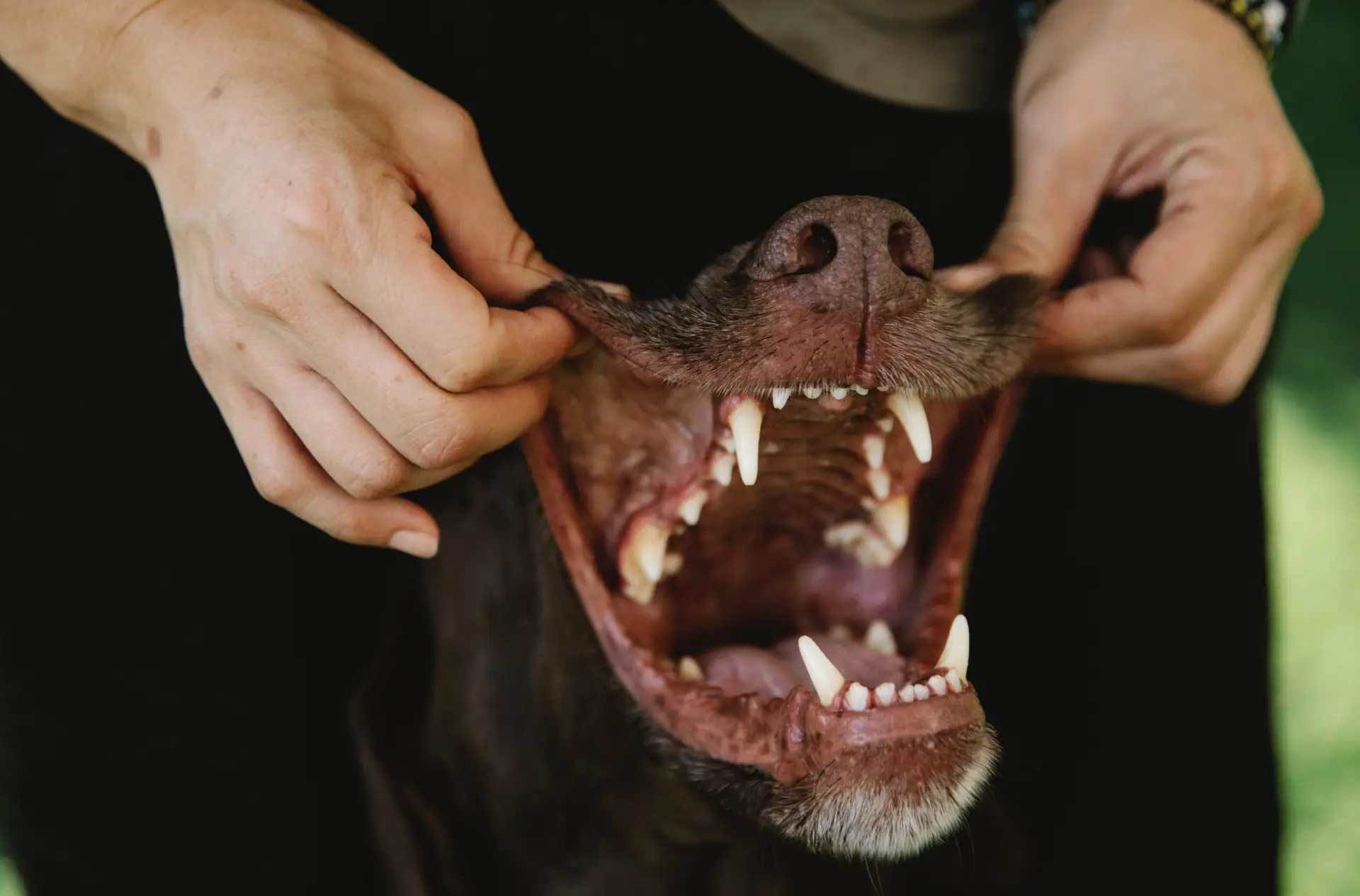Unwanted Dog barking is the reason so many people give up on a dog. in this article, we share efficient tips on how to teach any dog to stop barking Humanely, Effectively, and Naturally!
Dogs bark. It’s a fact of life. This is how they communicate when they are bored, afraid, anxious, happy, or excited. Yet, barking during the whole morning is simply not acceptable, nor is continuous barking from dawn to dusk. Although it may seem easy to just strap on a citronella bark collar, this would not be the best solution and could even hurt your dog. Therefore, you must find the main reason behind your dog’s barking before investing in any quick-fix solutions.
Here are some useful techniques that will help you to stop your dog barking
Introduction: Excessive barking can be a frustrating issue for dog owners and their neighbors. Fortunately, training your dog to stop barking on command can help alleviate this problem. In this article, we will discuss effective training techniques and tips to teach your dog to be quiet on command.
Understand Why Your Dog Barks:
Understanding why dogs bark excessively is an important step in training them to stop barking on command. Here are some reasons why dogs may bark excessively:
- Communication: Just like how humans communicate to express their emotions, desires, and needs, dogs bark to convey information or to communicate with their owners or other dogs. For example, a dog may bark when they’re excited to go for a walk, when they sense danger or a stranger approaching, or when they’re bored and want attention.
- Anxiety or fear: Some dogs may bark excessively due to anxiety or fear, such as separation anxiety when their owner leaves or fear of loud noises like thunder or fireworks. If your dog is barking due to anxiety or fear, you may need to work on desensitization and counter-conditioning techniques to help them feel more comfortable and less anxious in certain situations.
- Territorial or protective behavior: Other dogs may bark to protect their territory or their owners, which is a natural behavior that can become excessive if not managed properly. If your dog is barking due to territorial or protective behavior, it’s important to establish clear boundaries and teach them the “quiet” command to prevent excessive barking.
To train your dog to stop barking on command, here are some tips:
- Determine the reason behind your dog’s excessive barking: Understanding the root cause of your dog’s barking can guide your training approach. For example, if your dog is barking due to anxiety or fear, you may need to work on desensitization and counter-conditioning techniques. On the other hand, if your dog is barking due to boredom or lack of exercise, providing more mental and physical stimulation can help reduce their excessive barking.
- Teach the “quiet” command: Once you have identified the reason behind your dog’s excessive barking, you can start training them to stop barking on command. The “quiet” command is a useful tool to help your dog stop barking when necessary. To teach this command, wait for your dog to start barking and then say “quiet” firmly. When your dog stops barking, reward them with a treat or praise.
- Reward good behavior: Positive reinforcement is an effective training technique that can help reinforce good behavior. When your dog stops barking on command, reward them with a treat or praise. Over time, your dog will learn that stopping barking when you say “quiet” leads to positive rewards.
By understanding why your dog barks excessively and following these training tips, you can teach your dog to stop barking on command and prevent excessive barking in the future.
Too Much Dog Barking? Ignore it!

Many dogs bark trying to seek your attention. This kind of barking is common with puppies especially when they are getting used to being alone in their crates or playpens. But as hard as it can be for you, the best way to stop this barking is to not mind your dog’s barking at all. This means no talking, no touching, and not even any eye contact. As any attention, you give your pet only rewards them for being noisy. When they finally quiet, even if it is just to take a breath, reward them with a treat. It may take longer to break in older dogs that have been taught this type of play was okay when they were puppies. However, in many cases, play barking is not a big deal and can certainly be tolerated.
What Motivates Your Dog? Remove the motivation

One of the most effective ways to reduce barking is to work out what is causing your dog to bark and then remove the motivation. For example, for dealing with dogs that bark along the fence line, this can be as simple as removing your dog from the area or putting up barriers to prevent your dog from running and pacing the fence line. Or you can do this by building a dog pen or run to keep your pet safely contained and relaxed when you aren’t home or simply bringing your pet inside the house.
Train Your Dog. Teach him the quiet command

This may sound obvious, but this technique comes in two parts. First, you teach your dog to bark or “speak”’ on command. Once your dog can bark reliably on your command you can start to introduce the ‘quiet’ command. In a calm environment with no distractions, tell him to “speak.” When he starts barking, say “quiet” and stick a treat in front of his nose. Praise him for being quiet and give him the treat.
Tired Dog is a Quite Dog

If your dog is barking at anything and everything the first step is to make sure your dog is getting sufficient physical and mental exercise every day. As often a dog who is barking excessively is a bored dog crying out for help. After all a tired dog is a good dog and one who is less likely to bark from boredom or frustration. Depending on his breed, age, and health, your dog may require several long walks as well as a good game of chasing the ball and playing with some interactive toys.
Set up a dog quiet zone

If your dog barks when you leave the house or overnight, it can be helpful to set up a safe and quiet place for them away from the front door. This may be a spare bedroom, laundry room, or spare space equipped with a comfy bed, food dispensing toys, and radio to block out external sounds. As in New Zealand, night-time barking tends to be caused by hedgehogs or possums. If you have a problem with a night barker placing them in a prey-free area at night, such as a laundry or garage, can prevent these midnight barking frenzies.
Seek For Professional Help
In some cases, the causes of your dog’s excessive barking may be more complicated. Dogs occasionally become compulsive barkers, meaning they bark in situations that aren’t considered normal. Or if your dog is barking at other people or dogs, it could be aggression or anxiety related. An aggressive dog is barking to warn you of what may come next so in these cases it is always best to seek help from an animal behaviorist or dog trainer to help find the cause of your dogs barking before attempting any techniques to stop the behavior.
What are the Signs of Aggression in Dogs?
- The dog may run towards the person or another dog continuously barking or growling.
- Hackles (hair on back and neck) may be raised.
- The tail will be raised and wagging (never underestimate a wagging tail, it doesn’t always mean a friendly gesture).
- The chest will be out and the dog will be standing tall.
- Ears will be erect.
- Lunging/leaning forward and barking.
- The dog will be making direct eye contact with the person or other dog.
Dog Barking Facts
- Continuous barking puts a huge amount of strain on your dog’s throat and can lead to infections.
- If you allow your dog to bark, you could be encouraging aggressive behavior.
- Puppies love to ‘talk’. However, once your puppy grows into a hulking great hound, will all that carry-on be so sweet? Discouraging barking from the beginning is paramount in preventing problems.
- Yelling very rarely works as a deterrent to barking. Sometimes your dog may interpret the shouting as attention and continue to bark.
- Use quick, sharp words like ‘No!’ ‘Enough!’ or ‘Ah, Ah!’ Be firm and use a low, stern voice. Dogs hear tones, not words, so it is useless saying a whole sentence such as, ‘If you don’t stop that barking, I’m going to…’.
- Never hit your pet. Your dog is using its voice and should never be beaten for any reason.
- Some breeds will bark more than others. Researching your chosen breed and their associated noise levels are important before you take one home.






